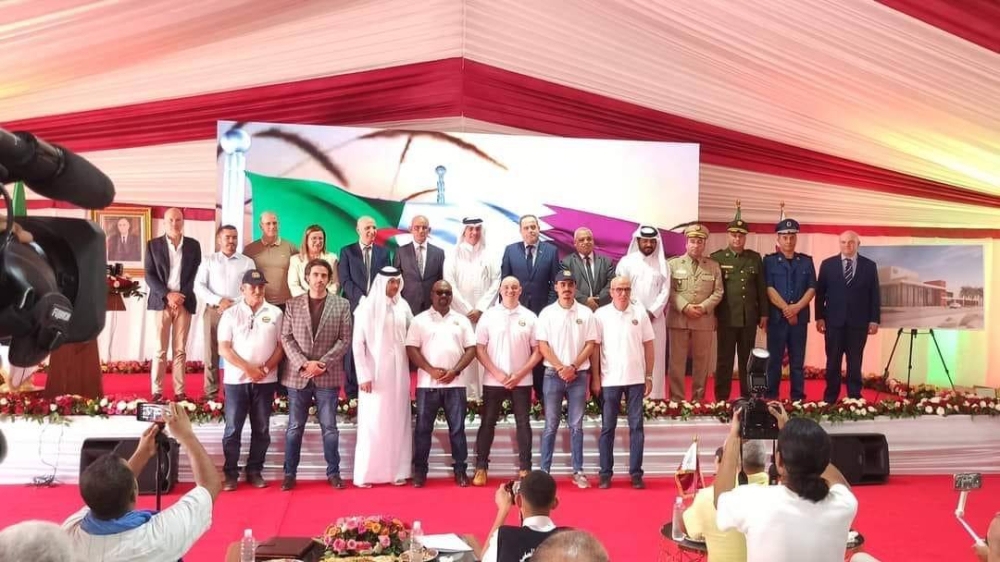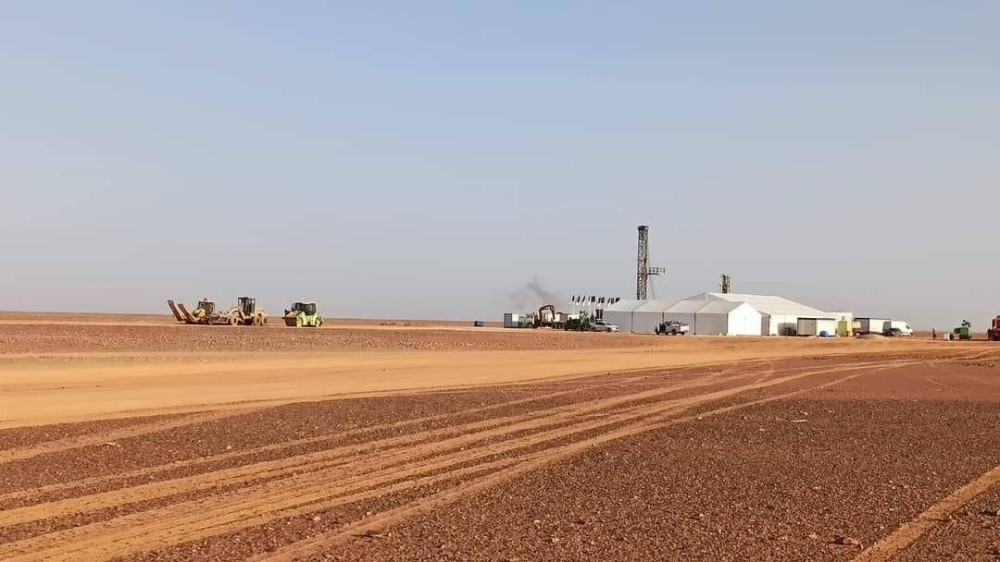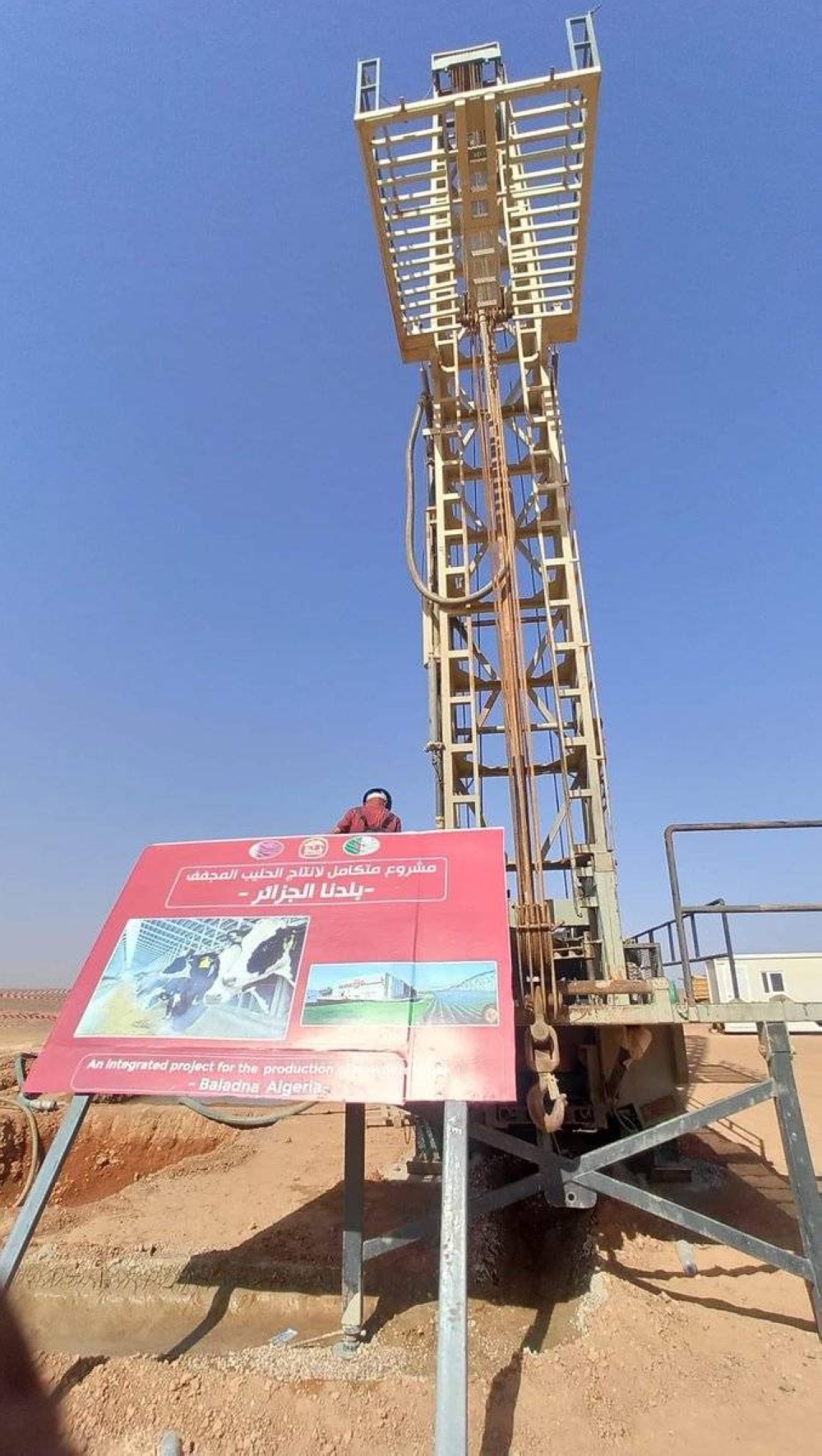


Baladna announced the commencement of the first phase of its powdered milk production project in Algeria.
In a statement, the company stated that it has initiated the early stages of the project by drilling exploratory water wells in various areas of the allocated land to support the cultivation of grains and fodder necessary for raising cattle.
The project was signed on April 24 of last year between the Algerian Ministry of Agriculture and Rural Development and Baladna for the production of powdered milk, with a value of $3.5 billion.
The ceremony marking the start of the project was attended by HE Qatars Ambassador to Algeria Abdulaziz Ali Al Naama along with several senior officials in Algeria and representatives from Baladna Food Industries.
The company mentioned that the drilling of the wells aims to study the nature of the groundwater and to reach the optimal design, with the goal of ensuring the sustainability of water resources for the project and future generations. The company confirmed that it intends to use the best techniques to monitor and enhance the efficiency of groundwater usage by integrating data from weather stations and satellite imagery.
Governor of the Adrar Province in Algeria Al Arabi Bahloul said that the project would represent a true launch for vital food sectors and dairy products, making it a pivotal step toward achieving food security. Additionally, the project is expected to contribute to lowering the prices of locally manufactured food products, thus aiding in the development of the Algerian economy and reducing import costs.
Ali Al Ali, a representative of Baladna, expressed his happiness with the commencement of the preliminary work for the project, adding that what is now a desert will transform into a beacon of excellence and innovation, housing the worlds largest integrated vertical farm, with more than 270,000 head of cattle, producing approximately 1.7 billion liters of milk annually. He said that the company will use the latest technologies, agricultural automation, and cattle breeding and dairy production methods, adhering to the highest standards of quality and environmental sustainability.
He pointed out that Baladna will implement the best irrigation methods to minimize excessive water use during all phases of the project. As part of its efforts to develop integrated mechanisms for water conservation, Baladna will use sensors to measure soil moisture and salinity to determine the exact amount of water needed for each crop.
Ramez Al Khayyat, a member of Baladnas Board of Directors, emphasized the importance of this strategic project, saying that this pioneering project is a new link that strengthens the bonds of cooperation between the two countries. He added that today sees the launch of the projects preliminary steps, highlighting its strategic importance to the company given that it allows the company to transfer its expertise and leadership in the dairy production sector to fulfill the Algerian governments vision of achieving self-sufficiency.
Earlier this year, Baladna announced the signing of an agreement with the Algerian government, represented by the National Investment Fund, to implement the project, which is expected to cover 50% of Algeria's powdered milk needs. The project, consisting of three phases, begins with the reclamation of fodder farms, followed by the establishment of a cattle breeding farm, and finally the construction of a powdered milk production facility. The project aims to reduce Algerias reliance on powdered milk imports, create over 5,000 job opportunities, increase local red meat production, and localize milk production to achieve self-sufficiency. (
